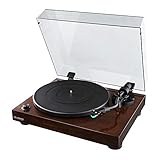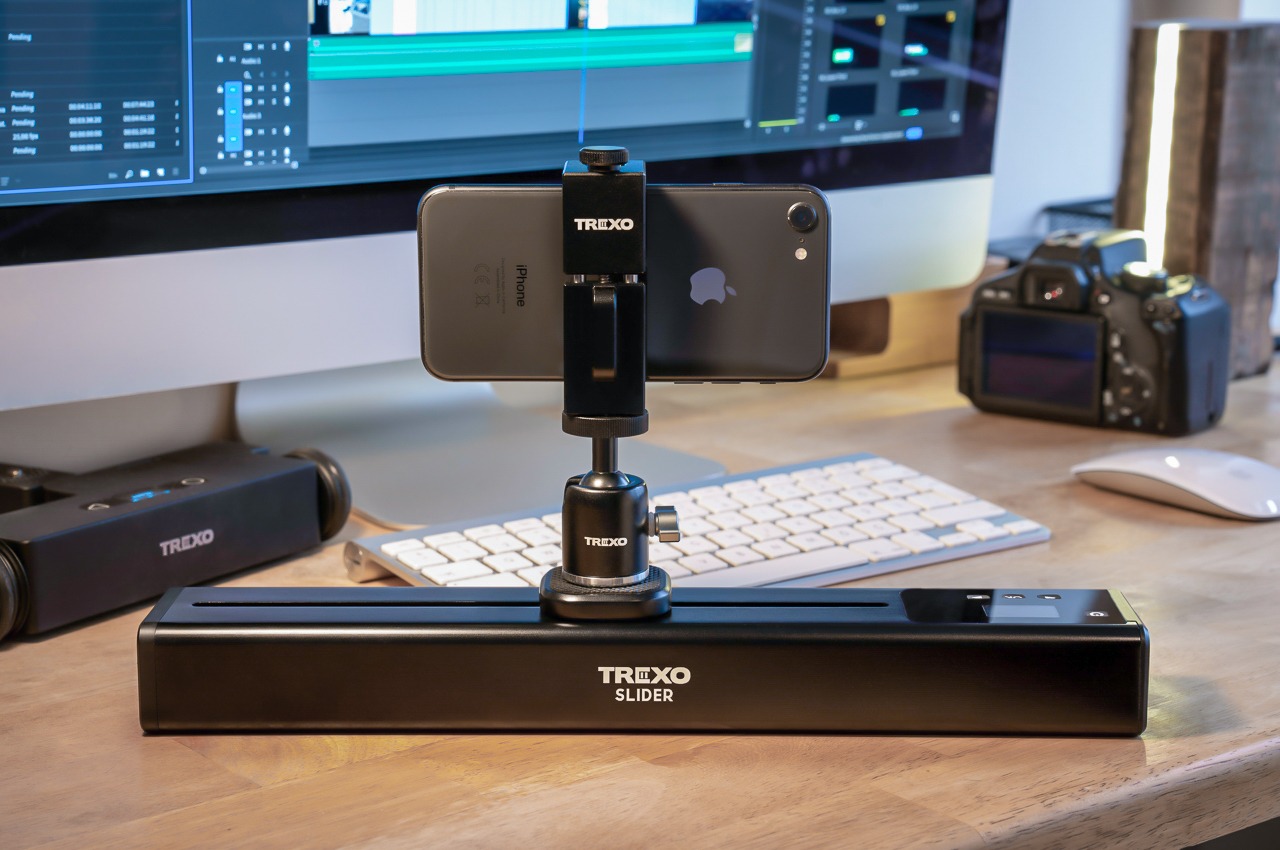#Belt-Drive vs. Direct-Drive Turntables: What’s the Difference?

Table of Contents
“Belt-Drive vs. Direct-Drive Turntables: What’s the Difference?”

Most people start their vinyl journey with a cheap belt-drive turntable. But when it’s time to upgrade, they discover something new—expensive direct-drive turntables. They cost more money, so they must be better, right? The answer is a bit more complicated than you’d expect.
Belt-Drive: Popular for Home Audio
The belt-drive turntable design is simple, intuitive, and easy to manufacture. That’s what makes it such a popular option for home audio—you can easily find a high-quality belt-driven turntable without breaking the bank.
In a belt-drive turntable, a large rubber belt connects a motor with a center spindle. This small spindle is supported by a bearing (basically a lazy susan) and attached to the record platter, where you place your vinyl. When the motor starts up, everything spins.
This design has a serious technical benefit; even with cheap or lightweight hardware, vibrations from your turntable’s motor are isolated from the platter. That means less unwanted noise.

Of course, belt-drive systems may take a few seconds to reach an appropriate speed. And because the belt-drive design is somewhat inconsistent, you may notice small fluctuations in speed on a cheap or poorly-made belt-drive turntable. (All belt-drive turntables run at an inconsistent speed, though this is really only noticeable when there’s a problem.)
Belt-driven turntables are also vulnerable to external pressure. You can’t spin a belt-driven turntable’s platter backwards, for example, or hold a spinning record in place with your finger. Doing so will force the belt to bunch up or fall out of place.
And because rubber belts wear out over time, belt-drive turntables require some maintenance. You may need to replace the belt in your turntable every five or so years—it’s an easy and cheap chore, thankfully.
The 6 Best Record Players of 2022 
Direct-Drive: The DJ’s Choice

In a direct-drive turntable, a motor is directly integrated with a center spindle and platter assembly. This eliminates the need for a belt, meaning that you can spin a record backwards without any consequence. The direct-drive system also provides a nice amount of torque, ensuring that records reach an appropriate speed almost instantaneously, even when stopped in place by your hand or an electronic brake.
Plus, direct-drive turntables often contain a variable pitch control—a fader that allows you to fine-tune playback speed. It’s a simple tool, but it can help you fix small discrepancies in playback speed or avoid skipping on a fussy record.
These features come at a high price. Still, direct-drive turntables are the ideal option for DJs and music producers. They allow you to start, stop, reverse, or scratch a record at any point using your hands. And in a two-platter machine, the direct-drive system makes it easy to align two records for crossfading or creative DJing.
Oh, and because direct-drive turntables lack a belt, they require very little maintenance. You may need to oil the bearings every once in a while, but that’s about it.
Unfortunately, motor noise is a common problem on inexpensive direct-drive turntables. The motor is located directly underneath the platter in a direct-drive design, so this isn’t much of a surprise. But well-made direct-drive turntables usually use a heavy platter and some dampening agents (padding, springs, etc) to eliminate motor noise.
Note that modern DJs usually use a “DJ controller,” as it’s cheaper and easier than relying on real turntables or vinyl records. Still, some DJs do things the old-fashioned way.
The 7 Best Turntables of 2022 
Is Maintenance Easier on a Direct-Drive Turntable?

Unlike belt-drive turntables, which require a new belt every few years, direct-drive systems are practically “maintenance-free.” There are fewer moving parts, so there’s less stuff that can break.
That said, both turntable designs require some basic maintenance. You need to keep your turntable clean, and you should oil the bearings as directed by the manufacturer. Also, the stylus that comes with your turntable will eventually wear out, forcing you to replace the entire cartridge. (Note that you may need to adjust the tone arm’s counterweight when you install a new cartridge.)
Personally speaking, I wouldn’t pay extra just to avoid some maintenance. Turntable belts usually last for about five years and cost just a few dollars to replace. Plus, YouTube exists, so you can always look up a tutorial if you have trouble installing a new belt.
On the other hand, installing a turntable belt requires fine motor skills. If you have a physical disability that could make this task difficult, you should probably opt for a direct-drive system.
Belt-Drive vs. Direct-Drive: Which Sounds Better?

Because belt-drive turntables are relatively cheap to manufacture, people often assume that they sound worse than direct-drive turntables. But this simply isn’t true—if a turntable is well made, the drive system won’t have a major impact on sound quality.
Now, there are a few caveats here. Some direct-drive turntables, particularly those with lightweight or unpadded platters, can produce a bit of unwanted noise. This is due to the fact that, in a direct-drive system, a motor is placed directly under the record platter.
Belt-drive turntables don’t suffer from motor noise, but they often run at an inconsistent playback speed. But this problem only becomes apparent when your turntable has a loose bearing, an incorrectly-sized or worn-out belt, or an overly heavy cartridge. (That said, uneven playback may be noticeable on a cheap belt-drive turntable, even if it’s well-maintained.)
Frankly speaking, you shouldn’t worry too much about a turntable’s drive system. Other factors, such as the tone arm, have a much more noticeable impact on sound quality. The assumption that direct-drive turntables sound “better” is due to an attitude of “this costs more, it must be better.”
That said, you may be interested in the features offered by a direct-drive turntable—things like a pitch control, for example, or the ability to use a heavy cartridge without negatively impacting playback. Direct-drive turntables don’t sound “better,” but they’re a bit more robust than belt-driven options.
How to Clean Your Vinyl Records 
If you liked the article, do not forget to share it with your friends. Follow us on Google News too, click on the star and choose us from your favorites.
For forums sites go to Forum.BuradaBiliyorum.Com
If you want to read more like this article, you can visit our Technology category.






















